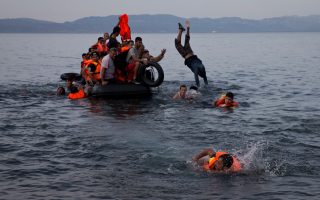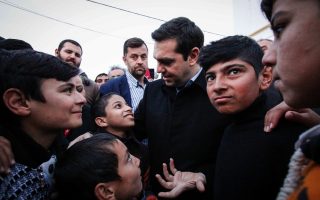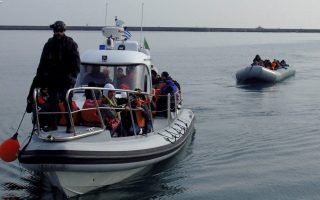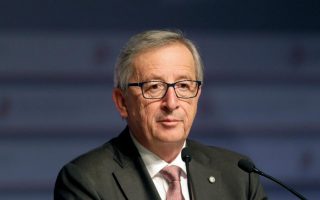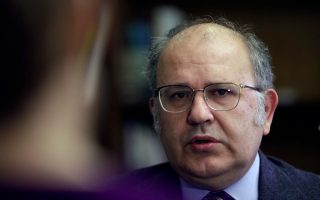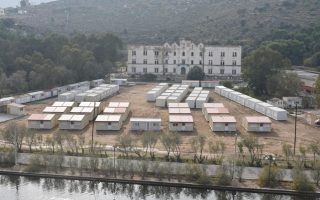Here are 159,792 reasons for EU’s flummoxed refugee policy
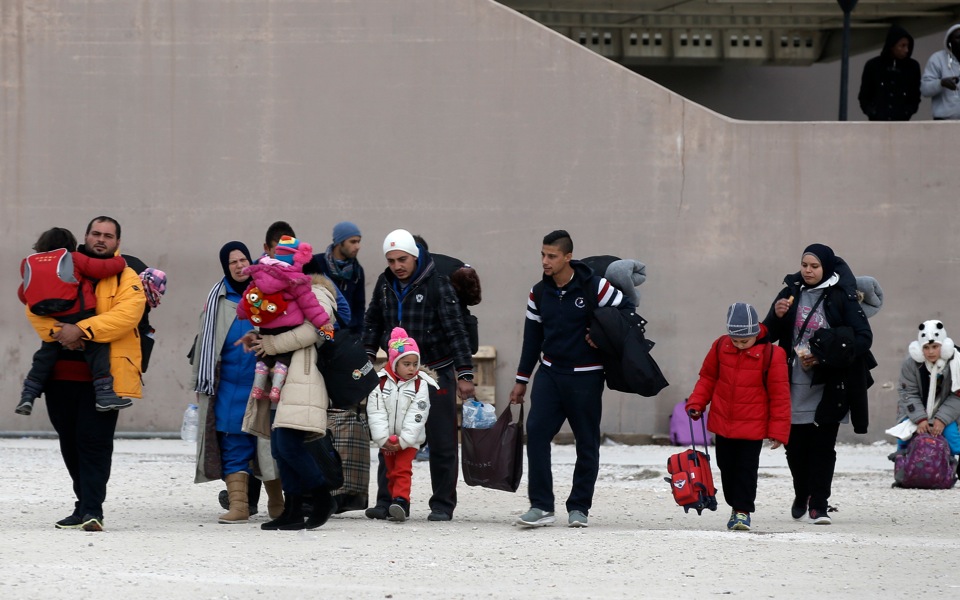
Wanted: 159,792 beds, $2.4 billion, and incalculable amounts of political will.
The bunks are for refugees, with the European Union having found new homes for a mere 208 out of a promised 160,000; the money is for humanitarian aid, with $3.7 billion delivered out of a pledged $6.1 billion; the political shortfalls will be on view at an EU summit in Brussels on Thursday.
The refugee tide has strained Europe more than the debt crisis, overwhelming impoverished Greece, elevating the “immigrants out” slogan to official policy in much of eastern Europe, stoking the far right in the west, and allowing a growing cast of demagogues to equate the mostly Muslim refugees with Islamic State terrorists who killed 130 in a Paris rampage in November. As in the debt crisis, a reluctant Germany is the safety net.
The U.K. is sowing further disquiet as it pursues its own agenda of renegotiating the terms of its membership in the 28- nation bloc.
“We have a difficult political landscape, which isn’t very conducive to putting decisions like refugee relocation into practice,” said Yves Pascouau, head of migration policy at the European Policy Centre in Brussels.
New proposals such as the setup of a European Border and Coast Guard will come up at the two-day summit, but the focus is mainly on getting national leaders and EU bodies to do what they’ve pledged to do since migration shot to the top of the agenda early this year.
“We need to speed up on all fronts,” EU President Donald Tusk said in a pre-summit letter to the leaders.
The European Commission, the bloc’s executive arm, estimates that 1.5 million people crossed into Europe illegally between January and November, more than ever before. Better-off countries led by Germany, Austria and Sweden have been the prime destinations.
Eastern opposition
Anti-foreigner politics from eastern Europe to France and historically tolerant Sweden have stymied the enforcement of EU- wide laws passed in September that require each country to harbor a share of refugees, as determined by its size and economic heft.
Hungary, Slovakia, the Czech Republic and Romania opposed the law, were outvoted and are exacting their revenge by ignoring it. Poland’s previous government was in favor, only to be swept out of power in October in a landslide by a party that has declared it dead letter.
Poland stiffened its anti-EU spine this week when Martin Schulz, a German Social Democrat who heads the European Parliament, said the new leadership’s centralizing instincts and effort to pack the supreme court with party acolytes has “the character of a coup.”
Austrian Chancellor Werner Faymann threatened to curb EU subsidies for the eastern states, telling Die Welt newspaper that in next year’s review of the bloc’s regional-aid budget “we will have a very close look at which countries have behaved in an especially uncooperative way on the refugee question.”
France, in thrall to Marine Le Pen’s anti-immigration National Front, has quietly supported German-led efforts to spread refugees across Europe. Its main contribution has been to go on the military offensive against Islamic State redoubts in Syria after the Paris terrorist attacks.
Cameron’s mission
Britain isn’t bound by the quota law, but for Prime Minister David Cameron, the summit brings together two issues — immigration and the EU — which aren’t exactly vote-getters at home. Cameron’s mission in Brussels is to whittle away at hurdles to a revamp of Britain’s EU membership terms to persuade U.K. citizens not to pull out of the bloc in a referendum planned by 2017.
The main leader to escape a domestic shellacking is German Chancellor Angela Merkel, and even that is subject to change. Internal Christian Democratic Union criticism was temporarily muffled this week when the party overwhelmingly backed her open- door policy, but bringing Europe into line is harder.
“We have to resist the temptation to fall back on nationalist ways in difficult times,” Merkel told German lawmakers in Berlin on Wednesday. “Isolation is no sensible option in the 21st century.”
Pledged humanitarian aid of 5.6 billion euros ($6.1 billion) for Syria, Africa and the World Food Program has been slow to trickle in — and that was before the bloc made a two- year, 3 billion-euro offer to help Turkey cope with the more than 2 million refugees encamped there.
Some governments have shifted money from other development- aid projects, defeating the purpose of improving living conditions in poorer parts of the world.
“It is vital that Europe responds quickly, but it’s absolutely imperative that any money pledged is additional to existing and promised aid,” said Eloise Todd, global policy director of ONE, a development advocacy group. “Otherwise we will not be able to serve the longer-term interest of fighting extreme poverty.”
[Bloomberg]
